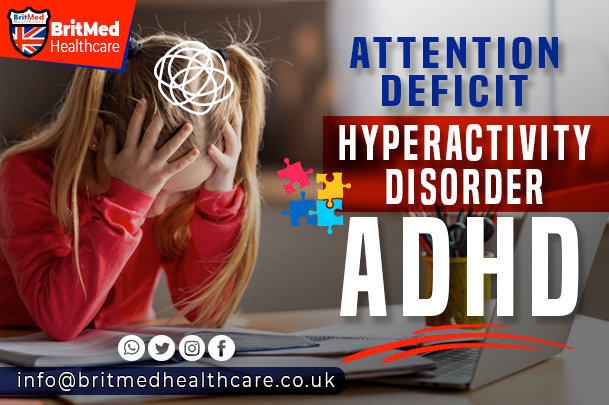Attention Deficit Hyperactivity Disorder (ADHD): A Comprehensive Review
Attention Deficit Hyperactivity Disorder (ADHD) is a neurodevelopmental disorder that affects both children and adults, characterized by symptoms of inattention, hyperactivity, and impulsivity. This complex condition is a significant concern for individuals, families, and healthcare professionals alike, as it can have a profound impact on daily life, social relationships, and academic or professional performance.
Epidemiology and Prevalence
ADHD is a widespread condition, affecting approximately 5-10% of children and 2-5% of adults worldwide. According to the World Health Organization (WHO), ADHD is one of the most common mental health disorders in children and adolescents, with a significant impact on quality of life and overall well-being.
Symptoms and Diagnosis
The primary symptoms of ADHD include:
- Inattention: Difficulty sustaining attention during tasks, easily distracted, and failure to complete tasks.
- Hyperactivity: Fidgeting, restlessness, and excessive physical activity.
- Impulsivity: Impatience, interrupting others, and blurting out answers.
To diagnose ADHD, healthcare professionals typically conduct a comprehensive evaluation, including:
- Clinical interviews with the individual and/or caregivers.
- Standardized rating scales (e.g., Conners’ Rating Scales).
- Behavioral observations.
- Neuropsychological testing (e.g., attention and cognitive tasks).
Subtypes of ADHD
ADHD is typically classified into three subtypes:
- Predominantly Inattentive Type: Symptoms of inattention are more prominent than those of hyperactivity-impulsivity.
- Predominantly Hyperactive-Impulsive Type: Symptoms of hyperactivity-impulsivity are more prominent than those of inattention.
- Combined Type: Symptoms of both inattention and hyperactivity-impulsivity are present.
Treatment Options
ADHD treatment involves a multidisciplinary approach, incorporating pharmacological and non-pharmacological interventions:
- Medications: Stimulants (e.g., methylphenidate) and non-stimulants (e.g., atomoxetine) are commonly used to manage symptoms.
- Behavioural Therapy: Cognitive-behavioural therapy (CBT), behavioural modification, and social skills training can be effective in addressing ADHD-related challenges.
- Lifestyle Changes: Encouraging regular exercise, healthy sleep habits, and a balanced diet can help alleviate symptoms.
Complications and Comorbidities
ADHD is often comorbid with other conditions, including:
- Mental Health Disorders: Anxiety, depression, substance abuse.
- Learning Disabilities: Dyslexia, attention deficit disorder.
- Chronic Medical Conditions: Sleep disorders, obesity.
Conclusion
Attention Deficit Hyperactivity Disorder (ADHD) is a complex condition that requires a comprehensive understanding of its symptoms, diagnosis, treatment options, and potential complications. As healthcare professionals continue to develop new treatments and interventions, it is essential to promote awareness, acceptance, and support for individuals affected by ADHD. By working together to address this condition, we can improve the lives of those affected and promote overall well-being.
References:
https://my.clevelandclinic.org/health/diseases/4784-attention-deficithyperactivity-disorder-adhd
https://en.wikipedia.org/wiki/Attention_deficit_hyperactivity_disorde
https://www.nhs.uk/conditions/attention-deficit-hyperactivity-disorder-adhd/symptoms/
Websites:
Britmed Healthcare: https://britmedhealthcare.co.uk/
Nightingale Hospital: https://www.nightingalehospital.co.uk/
Top Doctors: https://www.topdoctors.co.uk/doctor/ahmed-el-missiry
You can also book on Top Doctors UK Contact us on WhatsApp 08009708017




